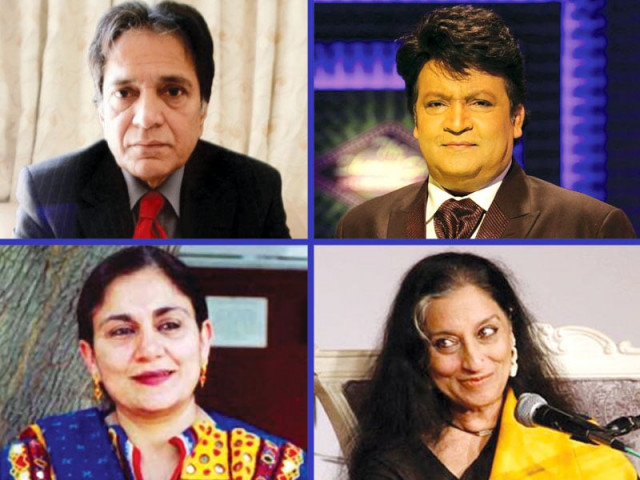Backstage I: an epilogue or just another beginning?
We look back at the narrowing gap between commercial and non-commercial theatre in Pakistan.

Theatre in the subcontinent is an extension of the ancient tradition of storytelling and festivals. Present-day Pakistani theatre comprises two types: commercial theatre and non-commercial (serious) theatre. The two types have nothing to do with the term ‘commercial’ as such, but are jargons used in the local theatre fraternity to explain the two categories of theatre in Pakistan.
Artistes may argue in favour of their respective inclinations, but what brings them all on the same page is their plight to earn more money. The irony is that those who are compromising the art form for financial gains are the ones who call themselves its ‘saviours’.

Mansoor Saeed
From the local perspective, commercial theatre is the kind where you don’t need a specific set for a particular storyline as characters keep entering and exiting the stage after delivering one-liners. This is followed by a young female dancer who heats up the atmosphere in the theatre hall. Vastly popular in Punjab, variations of this kind of theatre are performed in Peshawar and Karachi.

Zia Mohyeddin
These days, theatre in Karachi, which is being performed in English follows a similar pattern and comes off as a modern rendition of Lahori commercial theatre. It is interesting that, be it in English or Punjabi, commercial theatre always witnesses houseful. The English language is a mere disguise, which is essentially selling the same form of entertainment, but in a different package. So, does this mean that we the audience are to blame for the decline of quality theatre in Pakistan?

Moin Akhtar
Commercial theatre has been prevalent for decades and one can’t even deny that it has gifted us with brilliant performers such as Moin Akhtar, Albela, Umer Sharif and Mastana. Later, this tradition carried on in the form of audio and video cassettes and that is also, perhaps, the reason why commercial theatre artistes take credit for keeping theatre alive in Pakistan.

Sheema Kermani
Contrarily, those involved in non-commercial theatre believe they have used theatre as an art form to express meaningful ideas and don’t consider commercial theatre as a part of this craft. Post partition, radio dramas played a key role in the progress of non-commercial theatre and a number of those voice artistes eventually became the identity of non-commercial theatre.

Madiha Gohar
By the end of the 20th century, many different troupes emerged to the vanguard of non-commercial theatre in Pakistan. Some of the notable ones among them are Sheema Kermani’s Tehrik-e-Niswan, Madiha Gohar’s Ajoka theatre, Dastak which was initiated by Mansoor Saeed, with the tradition furthered by her daughter Sania Saeed in the form of the troupe, Katha), Theatre Wallay and Rafi Peer Theatre. It is pertinent to mention that both Tehrik-e-Niswan and Ajoka have been producing theatre for more than 30 years.

Umer Sharif
On an individual level, it is people like Zia Mohyeddin, Kamal Ahmed Rizvi, Firdous Jamal and Subhani Ba Younus, who did their best to keep non-commercial theatre alive and kicking. It’s interesting how none of these big names held harmonious views on the concept of non-commercial theatre. Instead, they kept arguing about whose service to the cause was more effective and noteworthy.

Recently, this form of theatre has been popularised through festivals, which took place on school level, making the audiences aware of their existence and what they have to offer. As a result of this, commercial and non-commercial theatres have found their own sets of audience and pathway.
The story is the first of a two-part series revolving around the dichotomy of commercial and non-commercial theatre in Pakistan. It was originally published in Roznama Express.
Translated By: Rafay Mahmood
Published in The Express Tribune, July 17th, 2014.
Like Life & Style on Facebook, follow @ETLifeandStyle on Twitter for the latest in fashion, gossip and entertainment.



















COMMENTS
Comments are moderated and generally will be posted if they are on-topic and not abusive.
For more information, please see our Comments FAQ